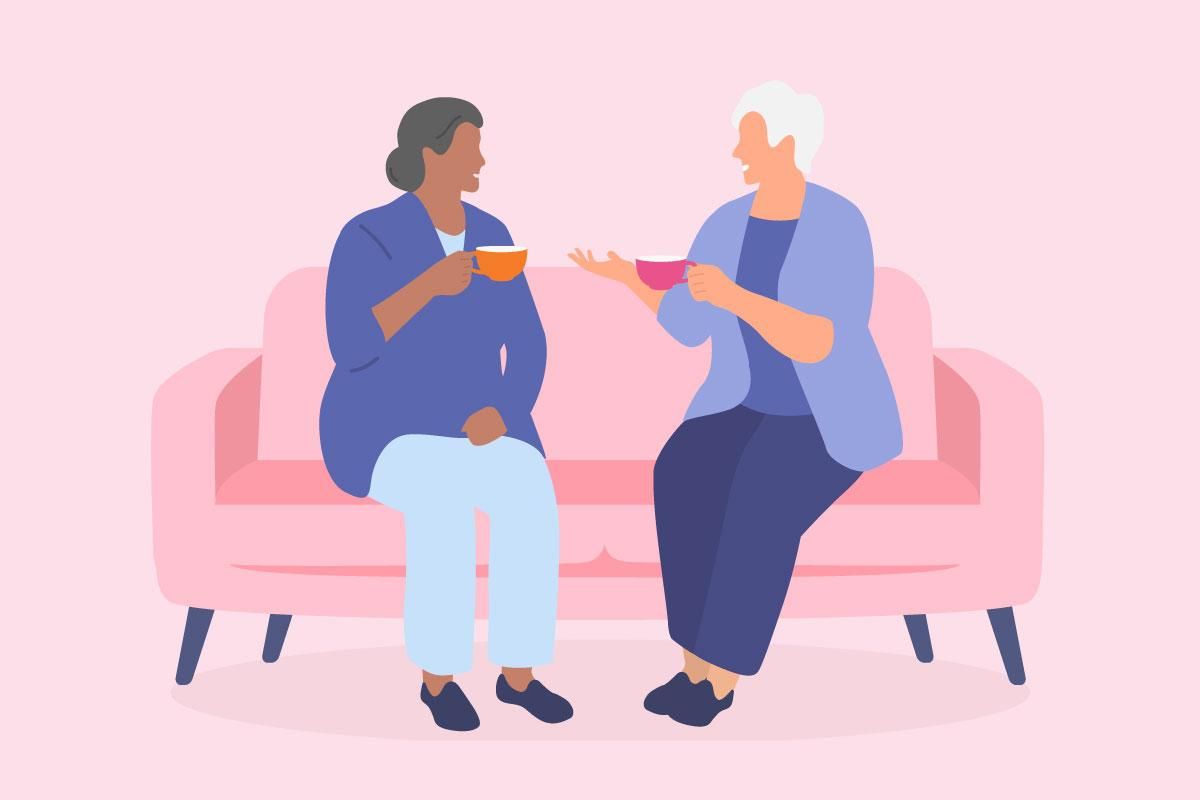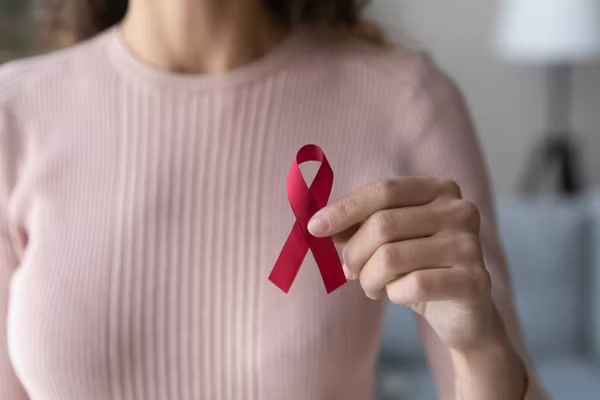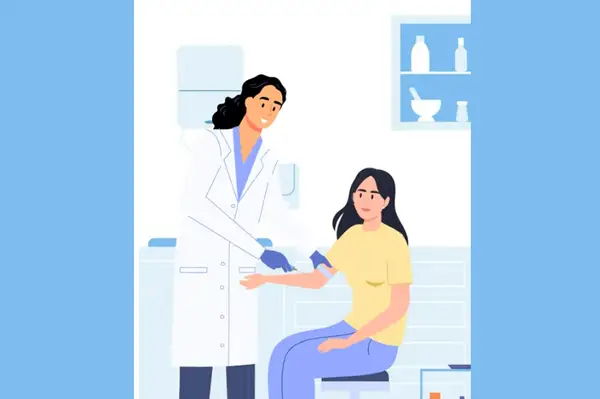Physical health
HIV has different symptoms based on the stage of infection.
The 3 stages of HIV infection are:
Acute
Chronic
Acquired immunodeficiency syndrome (AIDS)
Adults who live with chronic inflammation from HIV for a long time are at higher risk for
- Heart disease
- Diabetes
- Renal disease
- Osteoporosis
If you don’t take medicine, HIV will advance to AIDS, which can be fatal.
Did you know? Women are still at risk of getting HIV after menopause.
Other ways HIV can affect you
Stigma and discrimination can make people feel isolated and lonely
Stigma = a negative attitude or belief toward people living with HIV
Discrimination = when people with HIV are treated differently than those without HIV
Relationships
- Sharing your HIV status with previous and current sexual partners can be very emotional and difficult
- HIV can cause you to lose relationships when you share your status or when loved ones die from AIDS or AIDS-related complications
Employment
- Stigma and discrimination may lead to loss of employment
- People with HIV may worry about loss of employment
- HIV can affect physical health and cause changes in your ability to perform at work
Educating people around you and using supportive language can correct misinformation and reduce discrimination in social life, relationships and the workplace.
Mental health
A diagnosis of HIV can impact your sense of well-being.
- Facing a lifelong illness can cause overwhelming emotions
- Sharing your HIV status with friends, family and others in your life can be emotional
- Hiding your status from others can increase feelings of isolation
People with HIV have higher rates of mood, anxiety and cognitive disorders.
- Depression is one of the most common conditions in people with HIV.
In a 2022 survey conducted by HealthyWomen and the National Caucus and Center on Black Aging (NCBA):
- Almost half of the respondents did not know that antiretroviral therapy (ART) and early diagnosis can help people live with HIV for many years.
- Only half of the respondents knew that half of the people with diagnosed HIV in the U.S. are 50 years old or older.
Less than half (44%) of survey respondents felt they were knowledgeable about HIV transmission, prevention and treatment.
If you are living with HIV, you can care for yourself by:
- Taking your medication
- Exercising regularly
- Eating a healthy, balanced diet
- Avoiding smoking
- Finding a support system
- Reducing stigma by talking openly about HIV
Support groups, toll-free hotlines, mental health providers and HIV healthcare providers can help you get important information and advice related to living with HIV.
Did you know? Undetectable is equal to untransmittable (U=U). This means HIV levels are so low that they cannot be detected and the virus cannot be passed on.
This resource was created with support from BD, Janssen & Merck.
- HIV and Older Women ›
- Growing Older With HIV ›
- I Believe I’m Aging Faster Because I Have HIV ›
- Ask the Expert: HIV and Aging ›
- Your Guide to HIV & Aging ›
- Clinically Speaking: Questions to Ask Your Healthcare Provider About Your HIV Treatment - HealthyWomen ›
- Questions to Ask Your Healthcare Provider About HIV Treatment - HealthyWomen ›
- How HIV Affects Menopause and Menopause Affects HIV - HealthyWomen ›
- En qué forma el VIH afecta la menopausia y viceversa - HealthyWomen ›
- I Was the First Living Kidney Donor with HIV - HealthyWomen ›
- I Was Diagnosed with HIV When I Was 15. It’s Been a Journey of Learning to Love Myself Enough to Take My Meds. - HealthyWomen ›
- HIV/AIDS Support Group Finder - HealthyWomen ›
- I Don’t Regret Getting HIV Because It Saved My Life - HealthyWomen ›
- Protecting Yourself or Your Partner from HIV - HealthyWomen ›
- Protégete a ti y a tu pareja contra el VIH - HealthyWomen ›






